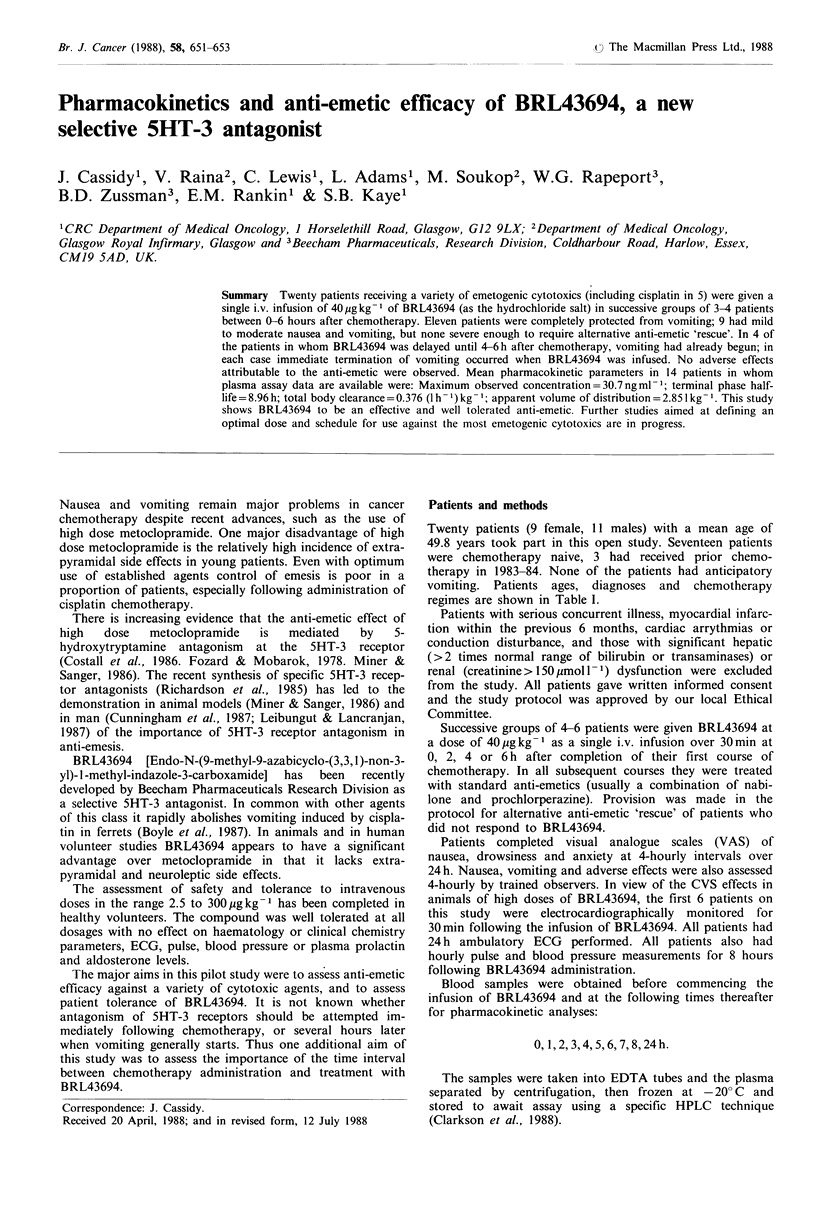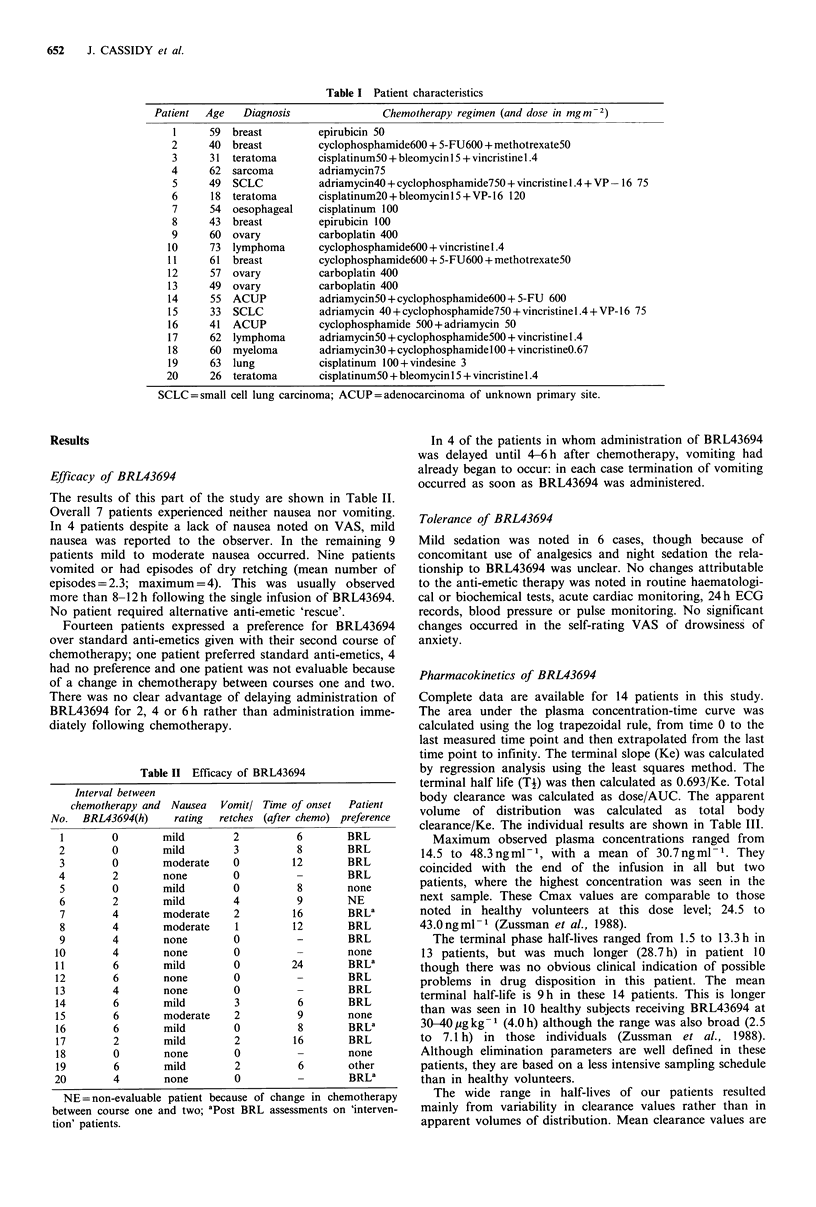Abstract
Twenty patients receiving a variety of emetogenic cytotoxics (including cisplatin in 5) were given a single i.v. infusion of 40 micrograms kg-1 of BRL43694 (as the hydrochloride salt) in successive groups of 3-4 patients between 0-6 hours after chemotherapy. Eleven patients were completely protected from vomiting; 9 had mild to moderate nausea and vomiting, but none severe enough to require alternative anti-emetic 'rescue'. In 4 of the patients in whom BRL43694 was delayed until 4-6 h after chemotherapy, vomiting had already begun; in each case immediate termination of vomiting occurred when BRL43694 was infused. No adverse effects attributable to the anti-emetic were observed. Mean pharmacokinetic parameters in 14 patients in whom plasma assay data are available were: Maximum observed concentration = 30.7 ng ml-1; terminal phase half-life = 8.96 h; total body clearance = 0.376 (1 h-1) kg-1; apparent volume of distribution = 2.85 l kg-1. This study shows BRL43694 to be an effective and well tolerated anti-emetic. Further studies aimed at defining an optimal dose and schedule for use against the most emetogenic cytotoxics are in progress.
Full text
PDF


Selected References
These references are in PubMed. This may not be the complete list of references from this article.
- Costall B., Domeney A. M., Naylor R. J., Tattersall F. D. 5-Hydroxytryptamine M-receptor antagonism to prevent cisplatin-induced emesis. Neuropharmacology. 1986 Aug;25(8):959–961. doi: 10.1016/0028-3908(86)90030-4. [DOI] [PubMed] [Google Scholar]
- Cunningham D., Hawthorn J., Pople A., Gazet J. C., Ford H. T., Challoner T., Coombes R. C. Prevention of emesis in patients receiving cytotoxic drugs by GR38032F, a selective 5-HT3 receptor antagonist. Lancet. 1987 Jun 27;1(8548):1461–1463. doi: 10.1016/s0140-6736(87)92208-2. [DOI] [PubMed] [Google Scholar]
- Fozard J. R., Mobarok ALI A. T. Blockade of neuronal tryptamine receptors by metoclopramide. Eur J Pharmacol. 1978 May 1;49(1):109–112. doi: 10.1016/0014-2999(78)90228-5. [DOI] [PubMed] [Google Scholar]
- Leibundgut U., Lancranjan I. First results with ICS 205-930 (5-HT3 receptor antagonist) in prevention of chemotherapy-induced emesis. Lancet. 1987 May 23;1(8543):1198–1198. doi: 10.1016/s0140-6736(87)92159-3. [DOI] [PubMed] [Google Scholar]
- Miner W. D., Sanger G. J. Inhibition of cisplatin-induced vomiting by selective 5-hydroxytryptamine M-receptor antagonism. Br J Pharmacol. 1986 Jul;88(3):497–499. doi: 10.1111/j.1476-5381.1986.tb10228.x. [DOI] [PMC free article] [PubMed] [Google Scholar]
- Plezia P. M., Alberts D. S., Kessler J., Aapro M. S., Graham V., Surwit E. A. Immediate termination of intractable vomiting induced by cisplatin combination chemotherapy using an intensive five-drug antiemetic regimen. Cancer Treat Rep. 1984 Dec;68(12):1493–1495. [PubMed] [Google Scholar]
- Richardson B. P., Engel G., Donatsch P., Stadler P. A. Identification of serotonin M-receptor subtypes and their specific blockade by a new class of drugs. Nature. 1985 Jul 11;316(6024):126–131. doi: 10.1038/316126a0. [DOI] [PubMed] [Google Scholar]


